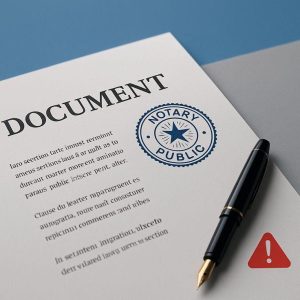Notarization is a legal process that adds an extra layer of authenticity and security to important documents. By having a document notarized, you’re essentially verifying its contents and the identity of the signer.
Why is Notarization Important?
- Proof of Identity: A notary public verifies the identity of the signer, ensuring that the person signing the document is who they claim to be.
- Legal Validity: Notarization can make a document legally enforceable. It can be used as evidence in a court of law.
- Deters Fraud: By adding a layer of security, notarization can deter fraud and forgery.
- Increases Trustworthiness: A notarized document is more likely to be trusted by other parties, such as banks, lenders, or government agencies.
Common Documents That Require Notarization
- Real Estate Documents:
- Deeds
- Mortgages
- Purchase agreements
- Power of attorney
- Legal Documents:
- Affidavits
- Wills
- Living wills
- Powers of attorney
- Business Documents:
- Contracts
- Articles of incorporation
- Bylaws
- Powers of attorney
- Financial Documents:
- Loan applications
- Retirement plan documents
- Trust documents
How Does Notarization Work?
- Identity Verification: The notary public verifies the signer’s identity using a government-issued ID.
- Document Signing: The signer signs the document in the presence of the notary.
- Notary Seal: The notary affixes their official seal to the document.
- Notary Certificate: The notary completes a certificate that details the notarization process.
By understanding the importance of notarization and the documents that typically require it, you can make informed decisions about when to seek notarization services. If you have any questions or concerns about notarization, consult with a legal professional or a notary public like Looking Glass Runners.






